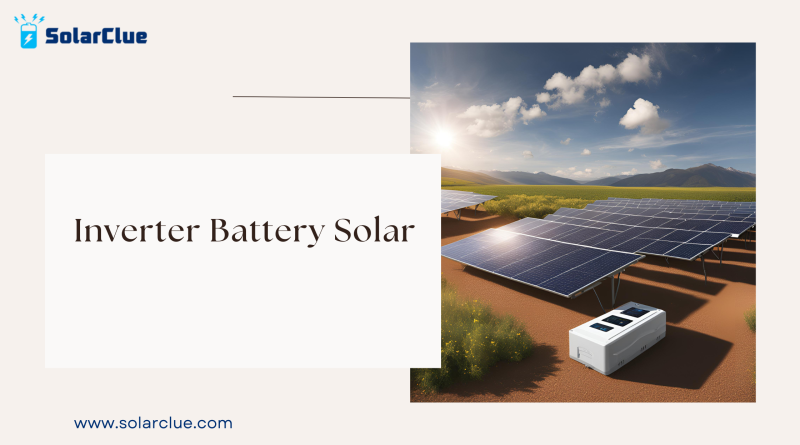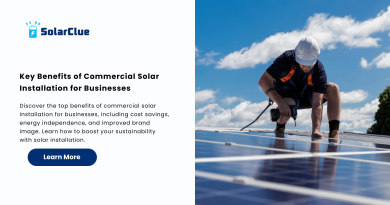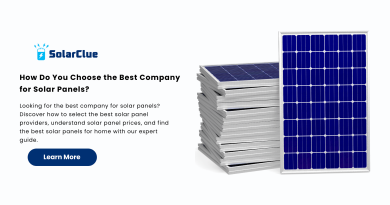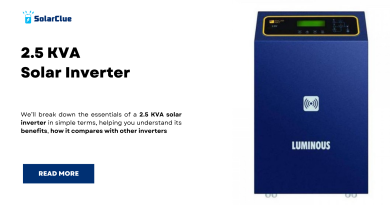Inverter Battery Solar
Imagine a world where you never have to worry about power outages, and your electricity bills are significantly reduced. Sounds like a dream, right? Well, with an inverter battery solar system, this dream can become a reality. This technology harnesses the power of the sun to keep your home running smoothly, even when the grid goes down. But what exactly is an inverter battery solar system, and how does it work? Don’t worry—we’ll break it all down in simple terms.
In this blog post, we’ll explore everything you need to know about inverter battery solar systems. We’ll cover how they work, the benefits they offer, and how to choose the right one for your needs. Whether you’re new to solar energy or just looking to upgrade your current setup, this guide will help you make an informed decision.
Table of Contents
What is an Inverter Battery Solar System?
An inverter battery solar system is a setup that allows you to generate, store, and use solar energy to power your home. It consists of three main components: solar panels, an inverter, and a battery. Here’s a simple breakdown of how it works:
- Solar Panels Capture Sunlight: The solar panels, typically installed on your roof, absorb sunlight and convert it into direct current (DC) electricity.
- Inverter Converts DC to AC: The inverter takes the DC electricity from the solar panels and converts it into alternating current (AC) electricity, which is what your home appliances use.
- Battery Stores Excess Energy: The battery stores any excess energy generated by the solar panels. This stored energy can be used later, such as at night or during power outages.
This system allows you to use solar energy not just when the sun is shining, but anytime you need it, providing a reliable and sustainable power source for your home.
Why Invest in an Inverter Battery Solar System?
There are several compelling reasons to invest in an inverter battery solar system. Here are some of the key benefits:
1. Energy Independence
One of the biggest advantages of an inverter battery solar system is energy independence. By generating and storing your own electricity, you reduce your reliance on the grid. This means that even if there’s a power outage, your home can continue to run smoothly.
2. Cost Savings
Another major benefit is cost savings. While there’s an initial investment in the system, over time, you’ll see significant savings on your electricity bills. Since you’re generating your own power, you’ll be less affected by rising energy costs.
3. Environmentally Friendly
Switching to solar power is one of the most effective ways to reduce your carbon footprint. Solar energy is a clean, renewable resource, and using it to power your home reduces your reliance on fossil fuels, helping to protect the environment.
4. Reliable Power Supply
With an inverter battery solar system, you have a reliable backup power source. This is especially important in areas prone to power outages. The battery ensures that you have power even when the grid is down, providing peace of mind and security.
5. Increased Property Value
Investing in a solar power system can also increase the value of your property. Homes with solar energy systems are often more attractive to buyers, as they offer lower energy costs and a reduced environmental impact.
Types of Inverter Battery Solar Systems
There are different types of inverter battery solar systems available, each with its own set of features and benefits. Let’s take a look at some of the most common options:
1. Off-Grid Systems
Off-grid systems are completely independent of the electricity grid. They generate, store, and use solar energy exclusively, making them ideal for remote locations or areas with unreliable power supply. However, they require a larger battery capacity to ensure continuous power, especially during periods of low sunlight.
2. On-Grid Systems
On-grid systems are connected to the electricity grid and use solar energy to reduce your dependence on the grid. They don’t require a large battery capacity, as any excess energy can be fed back into the grid. However, they won’t provide power during an outage unless combined with a battery backup.
3. Hybrid Systems
Hybrid systems combine the best of both worlds. They are connected to the grid but also include a battery backup. This allows you to use solar energy during the day, store excess energy, and draw from the battery during outages or at night. Hybrid systems offer the most flexibility and reliability.
Choosing the Right Inverter Battery Solar System
Selecting the right inverter battery solar system depends on several factors. Here’s what you need to consider:
1. Energy Needs
The first step is to assess your energy needs. How much electricity does your home use on a daily basis? This will help determine the size of the solar panels and battery capacity you need. A larger home with higher energy consumption will require a more powerful system.
2. Budget
Your budget will also play a role in your decision. While inverter battery solar systems can be a significant investment, there are options available at different price points. It’s important to balance cost with quality and efficiency.
3. Location
Your location can impact the efficiency of your solar panels. Areas with more sunlight will generate more energy, making solar power a more viable option. Additionally, if you live in an area with frequent power outages, investing in a battery backup may be more critical.
4. Future Expansion
Consider whether you might want to expand your system in the future. Some systems are designed to be scalable, allowing you to add more panels or increase battery capacity as your energy needs grow.
Inverter Battery Solar System Components
To better understand how an inverter battery solar system works, let’s take a closer look at its key components:
1. Solar Panels
Solar panels are the most visible part of your system. They capture sunlight and convert it into electricity. The number and type of panels you need will depend on your energy requirements and available space.
2. Inverter
The inverter is the brain of your solar power system. It converts the DC electricity generated by the panels into AC electricity that can be used by your home appliances. Inverters come in different types, including string inverters, microinverters, and hybrid inverters.
3. Battery
The battery stores excess energy generated by the solar panels. This stored energy can be used during periods of low sunlight or power outages. Batteries come in various capacities and technologies, such as lead-acid or lithium-ion.
4. Charge Controller
The charge controller regulates the flow of electricity from the solar panels to the battery. It prevents overcharging and protects the battery from damage, ensuring a longer lifespan.
Comparison Table: Types of Inverter Battery Solar Systems
| Type | Grid Connection | Battery Backup | Best For | Cost |
|---|---|---|---|---|
| Off-Grid | No | Yes | Remote locations | High |
| On-Grid | Yes | No | Reducing electricity bills | Moderate |
| Hybrid | Yes | Yes | Reliable backup power | High |
Installation and Maintenance Tips
Installing an inverter battery solar system is a significant investment, so it’s important to get it right. Here are some tips to ensure a successful installation and long-term performance:
1. Professional Installation
While it might be tempting to save money by installing the system yourself, professional installation is highly recommended. A certified installer will ensure that your system is set up correctly and safely, optimizing performance and avoiding potential issues.
2. Regular Maintenance
Regular maintenance is essential to keep your system running smoothly. This includes cleaning the solar panels, checking the battery’s health, and ensuring that all components are functioning properly. Most systems require minimal maintenance, but it’s important to follow the manufacturer’s guidelines.
3. Monitor Performance
Many modern systems come with monitoring tools that allow you to track your system’s performance in real-time. This can help you identify any issues early and ensure that your system is operating at peak efficiency.
Cost and Savings of Inverter Battery Solar Systems
The cost of an inverter battery solar system can vary widely depending on the size, type, and brand of the components you choose. However, it’s important to view this as a long-term investment. Here’s why:
- Initial Cost: While the upfront cost can be high, especially for off-grid and hybrid systems, many governments offer incentives and rebates that can help offset the cost.
- Ongoing Savings: Once installed, your system will start to pay for itself through reduced electricity bills. In areas with high electricity rates, the savings can be substantial.
- Return on Investment: Over time, the savings on your electricity bills will outweigh the initial cost, leading to a strong return on investment. Additionally, the increased property value can further enhance your ROI.
Conclusion
Switching to an inverter battery solar system is a smart investment that offers numerous benefits, from energy independence to cost savings and environmental protection. By understanding how these systems work and choosing the right setup for your home, you can enjoy reliable, sustainable power for years to come. Whether you’re looking to reduce your electricity bills, protect against power outages, or simply do your part for the environment, an inverter battery solar system is a powerful solution. So why wait? Start harnessing the power of the sun today!
Visit SolarClue® to see the best Solar Inverters. SolarClue® actively sells solar energy products at discounts of up to 50% on its online marketplace.
FAQs
Q1: How long do inverter battery solar systems last?
A: The lifespan of an inverter battery solar system can vary, but most systems last between 10 to 25 years. Regular maintenance can help extend the life of your system.
Q2: Can I use an inverter battery solar system in any location?
A: Yes, but the efficiency of the system will depend on the amount of sunlight your location receives. Areas with more sunlight will generate more energy.
Q3: Do I need a large battery for my solar system?
A: The size of the battery depends on your energy needs and whether you want a backup during power outages. Larger batteries provide more storage but are also more expensive.
Q4: Can I expand my inverter battery solar system in the future?
A: Yes, many systems are designed to be scalable, allowing you to add more panels or increase battery capacity as your needs grow.
Q5: Is professional installation necessary for an inverter battery solar system?
A: While some people may attempt DIY installation, professional installation is recommended to ensure safety and optimal performance.




